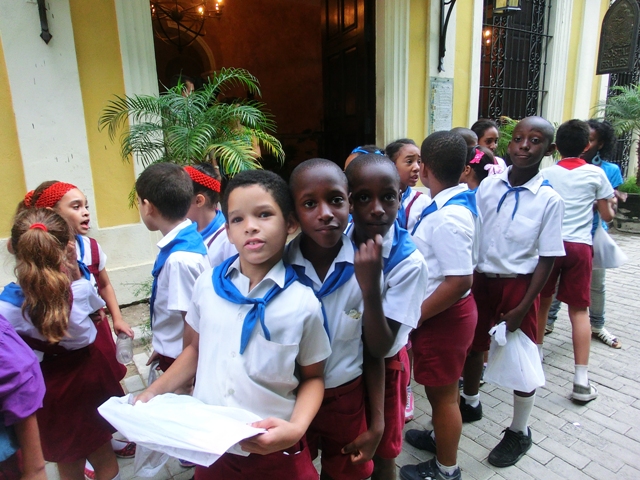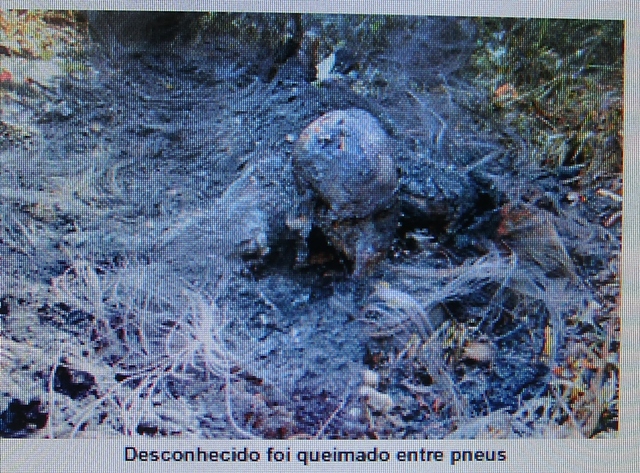Klaus Hart Brasilientexte
Aktuelle Berichte aus Brasilien – Politik, Kultur und Naturschutz
„Challence to CELAC countries“. Brasiliens wichtigster Befreiungstheologe Frei Betto über die CELAC-Konferenz 2014 in Havanna.
No other Continent has experienced significant changes such as Latin America and the Caribbean have during the past three decades. The II Summit of the CELAC (Community of Latin American and Caribbean States) held in Havana between 28 and 29 January 2014, reflected this innovative process and the challenges it presents to the 33 countries – with 600 million inhabitants – who integrate the entity created officially in Caracas on December 3 2011. Cuba proposed strengthening the struggle against poverty, hunger and inequality and declared the Continent “a peace zone” particularly free of nuclear armaments. CELAC condemned USA’s criminal blockade of Cuba, supported Argentine sovereignty over the Malvinas Islands (Falklands) and backed Puerto Rico’s independence and eventual entry into the organisation.


Ausriß. Scheiterhaufenopfer(Microondas), Januar 2013, Rio de Janeiro.
Scheiterhaufenpraxis: http://www.deutschlandradiokultur.de/moderne-scheiterhaufen-aus-autoreifen.1013.de.html?dram:article_id=167263

Ausriß: Zu Tode gesteinigter Homosexueller in Brasilien, laut Landesmedien. (Stands in Ihrem Lieblingsmedium?)
As an institution for political coordination, the CELAC is merited for excluding USA and Canada from participating due to their always considering Latin America and the Caribbean as their backyard… After the failure of NAFTA (North America Free Trade Agreement between the USA, Canada and Mexico with Chile as an associate) and the rejection of the proposed ALCA (Free Trade Agreement for the Americas) by the majority of the Continent’s countries, a new course began towards walking on its own two feet. Latin America and the Caribbean have at last reached maturity. This advance is due to many factors. Firstly, the resistance, persistence and permanence of the Cuban Revolution which did not succumb to US aggression nor to the destruction of the Berlin Wall and the dissolution of the Soviet Union. Immediately after, the electoral rejection of candidates embodying neo liberal proposals and the victory of those identified with popular demands, the poor in particular: Chavez, Daniel Ortega, Lula, Bachelet, Kirchner, Mujica, Correa, Morales etc. Several organisms were created for strengthening continental integration: ALBA (Bolivarian Alliance for the Peoples of America), UNASUL (Union of South American Nations), CARICOM (Caribbean Community), ALADI (Latin American Integration Association), PARLATINO (Latin American Parliament), SICA (Central America Integration System), etc. Many difficulties, however, appear on the horizon. In this neo liberal capitalist globalised and hegemonic economy the crisis of hard currencies like the dollar and the euro negatively affect the Continent’s countries. In spite of advances in the fight against extreme poverty, even now the region has 50 million indigent persons; workers’ salaries are low compared to the inflated cost of subsistence and social inequality grows rapidly (of the 15 most unequal countries in the world, 10 are to be found on the Continent). In Europe, where the economic crisis causes unemployment for 30 million people, mostly young, there is no longer a left capable of proposing alternatives. The Berlin Wall fell on the head of leftist parties and militants, almost all co-opted by neo liberalism. In CELAC countries the historical dependence of their foreign market economies indicates a crisis which tends to increase. GNP growth indexes fall, inflation reappears intensified by de-industrialisation and rural exodus, causing consequent expansion of the latifundium . Progressive discourse or policies do not suffice if they do not conform with or are not in harmony with economic programmes while our economies continue to be under pressure from metropolitan countries; from organisms completely controlled by the system’s heads (IMF, World Bank, OECD etc.); by a system of tariffs particularly on foodstuffs which is intrinsically unjust and according to which the market’s private profit is more important than peoples’ lives. Oxfam’s information published on January 16 2014, well represents the world in which we live: 85 people on the planet together possess a fortune of US$ 1.7 trillion, which equals the income of 3.5 billion people – half the world’s population. All the progressive governments which today belong to the CELAC know that they were elected by social movements and by the poorer segments who are the majority of the population. However, is effective work being done to organize the popular segments? Is there a methodology which goes beyond mere commands or declarations which will instil a revolutionary sense in citizens? Are social movements the protagonists of government policies or are they mere beneficiaries of welfare but not of emancipatory programmes in the fight against poverty? The head thinks where the feet tread. Our progressive governments run the serious risk of collapsing due to contradiction between leftist policy and rightist economy if they do not mobilise the people for the implementation of structural reform. As Onelio Cardozo said, people are “hungry for bread and for beauty”. The former can be satiated, the latter is permanent. This means that human desire, which is infinite, will only stop being hostage to consumerism and hedonism – tentacles of neo liberalism – if its hunger and beauty are satiated, i.e. with the meaning of existence, with moral emulation, with ethical values capable of moulding the new man and the new woman. This is not be to achieved merely via more beans on the plate and more money in the pocket but yes, with training which is capable of instilling in each citizen the conviction that it is worth living and dying so that all may have life and life in abundance, as Jesus said. (John 10:10). We thus return to the matter of political education. By nature the human being is selfish. However nobody is born reactionary, prejudiced, male chauvinistic or racist. This all depends on the education received. It is education that awakens in us altruism, solidarity, love, a sense of sharing and a disposition to sacrifice for others. To Raul Castro’s proposal for fighting poverty, hunger and inequality, I would add the urgency to also fight “poverty of spirit” and to satiate “hunger for beauty”, by methodologically cultivating in new generations and in social movements the desire to build a world of new men and new women. *Frei Betto is a writer, author of “A Mosca Azul – uma reflexao sobre o poder” (The Blue Fly – a reflection on power) (Rocco.
http://www.hart-brasilientexte.de/2008/02/15/wem-nutzen-banditendiktatur-und-immer-mehr-no-go-areas/
« Der Energiewende-Bluff: Nach Prokon meldet Windwärts Insolvenz an. – Brasilien: Hitzewelle 2014. »
Keine Kommentare
Noch keine Kommentare
Die Kommentarfunktion ist zur Zeit leider deaktiviert.
NEU: Fotoserie Gesichter Brasiliens
Links zum Thema Ukraine
Fotostrecken Wasserfälle Iguacu und Karneval 2008
interessante Links
Seiten
Ressorts
- Kultur (6.975)
- Naturschutz (1.101)
- Politik (12.729)
Suchen
RSS-Feeds
Verwaltung


